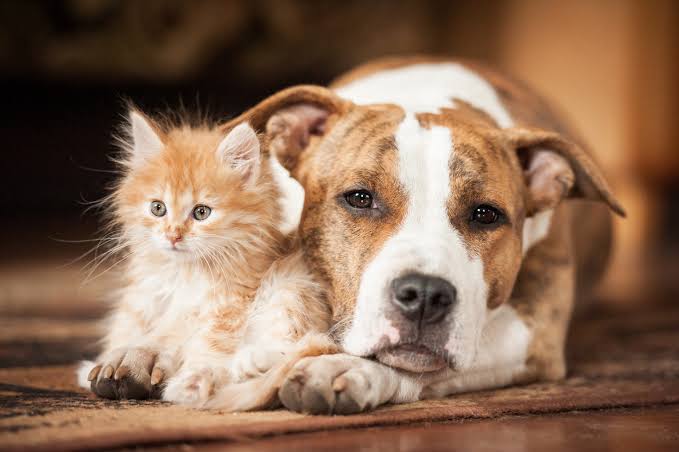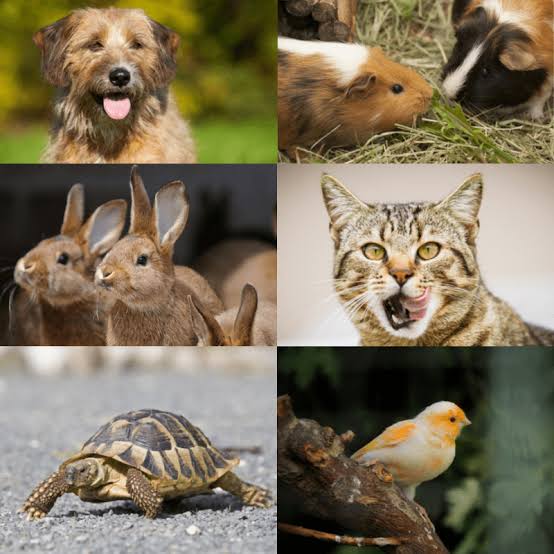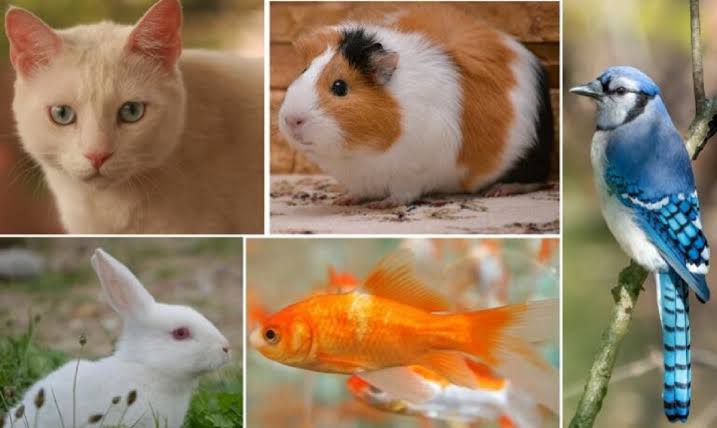Pets bring immense joy and companionship to our lives. From fluffy cats to playful dogs, these furry friends become cherished members of our families. The bond between humans and pets is unique and heartwarming.
Pets come in various shapes, sizes, and breeds. Some people prefer the loyal companionship of dogs, while others find solace in the independent nature of cats. Birds, fish, and small rodents also find their places in homes, bringing diversity to the world of pets.
The benefits of having a pet are numerous. They provide unconditional love and emotional support, making them excellent companions, especially for those living alone. The simple act of stroking a cat or walking a dog can alleviate stress and promote a sense of calmness.
Pets also encourage physical activity. Whether it’s playing fetch with a dog or engaging in interactive toys with a cat, the daily routines associated with pet care often involve movement. This not only benefits the pet’s health but also enhances the well-being of their owners.
Additionally, pets teach responsibility and commitment. Feeding, grooming, and regular veterinary visits become essential tasks, fostering a sense of accountability in pet owners. This responsibility extends beyond oneself, creating a nurturing environment for both the pet and the human.
The joy of coming home to a wagging tail or a purring ball of fur is unparalleled. Pets offer companionship that goes beyond words, creating a bond based on understanding and loyalty. They can sense our moods, providing comfort during difficult times and sharing in the joys of our successes.
The diverse personalities of pets add color to our lives. Each pet has its own quirks and habits, making them unique and endearing. Whether it’s a cat’s playful antics or a dog’s unwavering loyalty, these traits become integral parts of the human-pet relationship.
Caring for a pet also connects us to the natural world. Walking a dog in the park or setting up an aquarium brings a slice of nature into our homes. This connection fosters a deeper appreciation for the environment and encourages a sense of responsibility towards the broader ecosystem.
In addition, pets play a vital role in enhancing the quality of our lives. Their unconditional love, diverse personalities, and the joy they bring make them valuable companions. As we care for our pets, they, in turn, enrich our daily experiences, creating a bond that goes beyond words. So, whether it’s a wagging tail, a gentle purr, or the chirping of birds, the presence of pets adds immeasurable joy to our homes.
Furthermore, the therapeutic benefits of having pets extend to both mental and physical health. Studies have shown that interacting with pets can lower blood pressure, reduce stress, and alleviate symptoms of depression and anxiety. The simple act of petting a cat or playing with a dog triggers the release of endorphins, contributing to an overall sense of well-being.
The companionship of pets becomes particularly crucial for the elderly, providing them with a source of comfort and preventing feelings of loneliness. Nursing homes and assisted living facilities often introduce therapy animals to improve the residents’ emotional and mental states. The gentle presence of a pet can create a sense of purpose and bring smiles to faces that may not have lit up otherwise.
Pets also teach important life lessons, especially to children. Growing up with a pet instills values such as empathy, compassion, and responsibility. Children learn the importance of caring for another living being, developing a sense of empathy that extends beyond their immediate surroundings.
Interestingly, the bond between pets and humans has led to the rise of various forms of animal-assisted therapy. Dogs are commonly used as therapy animals, visiting hospitals, schools, and rehabilitation centers to provide comfort and support. These interactions have proven effective in aiding recovery and promoting emotional well-being in diverse settings.
Moreover, the internet is flooded with heartwarming stories of pets displaying extraordinary loyalty and heroism. From guide dogs assisting those with visual impairments to cats alerting their owners to potential dangers, these stories showcase the incredible intuitive nature of animals and the deep connections they forge with their human counterparts.
As we celebrate the invaluable role of pets in our lives, it’s essential to highlight the importance of responsible pet ownership. This involves providing proper nutrition, regular veterinary care, and a loving environment. Adoption from shelters and rescue organizations is a commendable way to give homeless animals a second chance and contribute to reducing the population of stray pets.
In essence, pets enrich our lives in multifaceted ways, offering companionship, promoting mental and physical well-being, and teaching valuable life lessons. Their unconditional love and loyalty create a unique bond that transcends language and cultural barriers. As we continue to share our homes and hearts with these wonderful creatures, let us cherish and nurture the special connection we have with our beloved pets.
Read Also: Sheep Production Guide
Importance of Pets

Pets hold great importance in our lives for several reasons. Firstly, they provide companionship that goes beyond words, offering a source of comfort and understanding. The emotional bond between humans and pets is unique, contributing significantly to our mental well-being by reducing stress, anxiety, and feelings of loneliness.
The therapeutic benefits of interacting with pets cannot be overstated. The act of petting a cat, playing with a dog, or simply having a pet by your side has been shown to lower blood pressure, release endorphins, and improve overall mood. This emotional support becomes especially crucial during challenging times, making pets reliable companions that offer unwavering loyalty and unconditional love.
Moreover, the presence of pets encourages physical activity and a healthier lifestyle. The responsibility associated with pet care, including feeding, grooming, and regular exercise, fosters a sense of routine and commitment. This not only benefits the pet’s health but also promotes a more active lifestyle for the owners.
Pets also play a vital role in teaching important life lessons, particularly to children. Growing up with a pet instills values such as empathy, compassion, and responsibility. The daily care routines associated with pet ownership contribute to the development of a strong sense of accountability and empathy toward other living beings.
Beyond individual homes, pets contribute to the broader community through therapy programs. Animals, particularly dogs, are used in various therapeutic settings, offering comfort and support to individuals in hospitals, schools, and rehabilitation centers. These interactions have proven to be effective in promoting emotional well-being and aiding in the recovery process.
In addition, the importance of pets in our lives is multifaceted. They enhance our emotional and mental well-being, teach valuable life lessons, and contribute to a healthier, more active lifestyle. The unique bond we share with our pets transcends language and cultural barriers, making them cherished members of our families and valuable contributors to our overall happiness and quality of life.
Types of Pets

Pets come in a diverse array of types, each offering unique characteristics and companionship. Dogs, known for their loyalty and diverse breeds, range from small companions like Chihuahuas to larger, more protective breeds such as German Shepherds. Cats, with their independent yet affectionate nature, come in various breeds, each with its own personality traits.
Birds, including parrots, canaries, and finches, make charming companions with their colorful plumage and often entertaining vocalizations. Fish, residing in aquariums, offer a tranquil and visually captivating presence. Small mammals like rabbits, hamsters, and guinea pigs provide cuddly companionship in compact sizes.
Reptiles, such as turtles, snakes, and lizards, appeal to those with an interest in unique and low-maintenance pets. Exotic pets, like sugar gliders or hedgehogs, bring a touch of the extraordinary to households willing to accommodate their specialized needs.
In recent years, the concept of unconventional pets has expanded, with some people adopting animals like pot-bellied pigs, miniature goats, or even alpacas as part of their families. The types of pets one can have are as diverse as the preferences and lifestyles of their owners, creating a rich tapestry of companionship options for animal lovers worldwide.
Common types of pets include:
1. Dogs: Known for their loyalty and diverse breeds, ranging from small breeds like Pomeranians to larger breeds like Golden Retrievers.
2. Cats: Independent and affectionate, with various breeds showcasing different personalities and characteristics.
3. Birds: From colorful parrots and melodious canaries to finches, birds add charm and sometimes interactive companionship.
4. Fish: Aquarium fish, with their vibrant colors and calming presence, are popular choices for those who enjoy aquatic environments.
5. Small Mammals: Rabbits, hamsters, guinea pigs, and ferrets are small, furry companions known for their playful nature.
6. Reptiles: Turtles, snakes, and lizards appeal to those interested in unique and low-maintenance pets.
7. Exotic Pets: Sugar gliders, hedgehogs, and other exotic animals are chosen by individuals seeking more unconventional companions.
8. Farm Animals: Some people adopt smaller farm animals like chickens, ducks, or miniature goats as pets.
9. Rodents: Gerbils, mice, and rats are social animals that can make affectionate and interactive pets.
10. Amphibians: Frogs and newts are examples of amphibians that are kept as pets in specialized setups.
The types of pets one may choose depend on personal preferences, living arrangements, and the ability to meet the specific needs of each species. Each type of pet brings its own set of joys and responsibilities, enriching the lives of their owners in different ways.
Read Also: Feeding and Grazing Behaviour of Goats
Where to Find Pets near Me/You

You can find pets through various channels, depending on your preferences and the type of pet you’re looking for:
1. Animal Shelters and Rescues: Adopting from shelters not only provides a home for a pet in need but also supports responsible pet ownership. Visit local animal shelters or check online platforms for adoptable pets.
2. Breed-Specific Rescues: If you have a specific breed in mind, breed-specific rescue organizations focus on rehoming particular breeds or types of animals.
3. Pet Stores: Some people prefer purchasing pets from reputable pet stores. Ensure the store follows ethical practices and provides proper care for their animals.
4. Breeders: If you’re looking for a specific breed with particular characteristics, responsible breeders can be found through breed clubs or recommendations. Ensure the breeder prioritizes the health and well-being of the animals.
5. Online Platforms: Various online platforms, including websites and social media, connect pet owners with those looking to adopt. Exercise caution and ensure the legitimacy of the source.
6. Local Breed Clubs or Events: Attend local pet events, shows, or breed-specific gatherings. These can be excellent opportunities to meet breeders, learn more about different types of pets, and find responsible sources.
7. Word of Mouth: Asking friends, family, or colleagues can sometimes lead to recommendations for reputable breeders or available pets in need of a new home.
Regardless of where you find a pet, it’s crucial to prioritize ethical and responsible practices. Ensure the pet has received proper veterinary care, has been treated well, and is a good fit for your lifestyle. Additionally, consider adoption as a meaningful way to provide a loving home for animals in need.
Read Also: Waste to Energy Business: What You Need to Know
